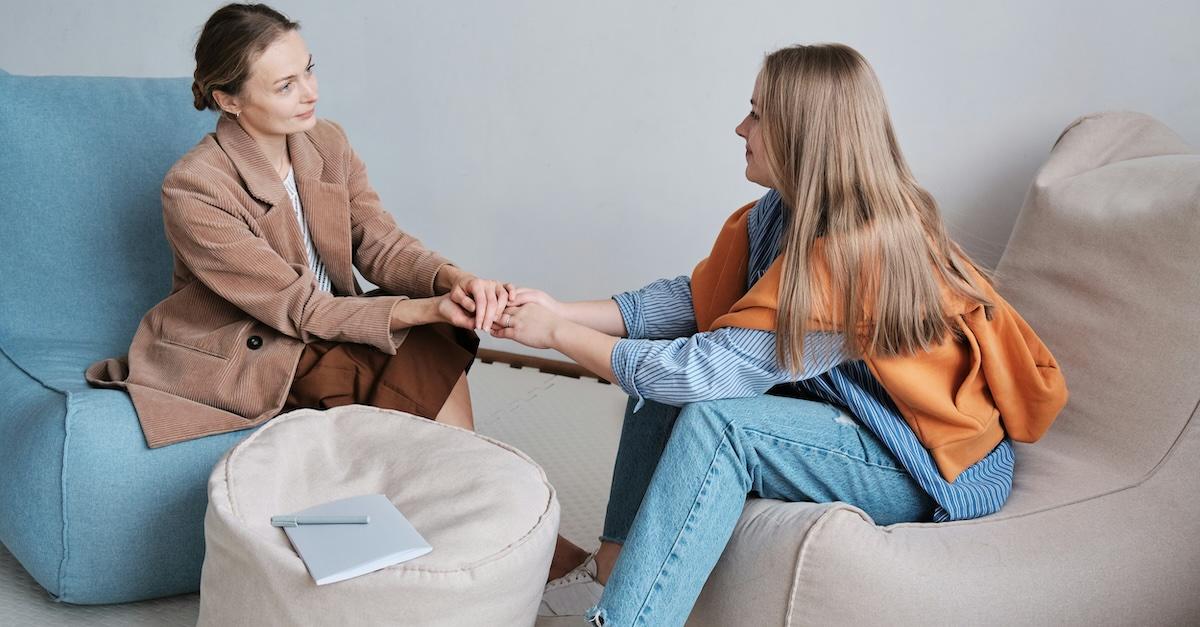Addiction Doesn’t Look Like It Used To — And That’s the Problem
Addiction, in a woman's world, doesn’t always look like rock bottom—it looks like high-functioning. And that’s exactly why so many women don’t get help.
Aug. 13 2025, Published 2:06 p.m. ET

For decades, the face of addiction was painted with a broad, mostly male brush. Rough around the edges. Down and out. That narrow image lets a lot of women slip through the cracks, especially professionals juggling work, kids, marriage, and appearances. Addiction, in their world, doesn’t always look like rock bottom—it looks like high-functioning.
It looks like staying late at the office and pouring a drink the second the shoes come off. It looks like keeping everything together until, quietly, something gives.
And that’s exactly why so many women don’t get help. They’re convinced they’re not “that bad.” The career’s intact. The house is clean. They’re showing up. But there’s a slow unraveling beneath the surface that doesn’t come with dramatic consequences—until it does.
The Myth of the ‘Together’ Addict
High-achieving women are masters at minimizing their own suffering. They’re taught to push through. To keep it polished, to handle it all. And when substance use starts creeping in—whether it’s wine at night, stimulants to power through the workday, or pills to take the edge off—it doesn’t look like a problem at first. It looks like coping. Like being efficient. Like staying sane.

But addiction doesn’t need to look messy to be real. It doesn’t need to destroy your job, marriage, or bank account to take up dangerous space in your life. Many women caught in these patterns quietly spiral for years. They manage the optics while privately losing their grip on sleep, moods, focus, and physical health. They tell themselves that if things were really out of control, someone would say something. But by the time someone does, the problem's roots.
That’s part of the reason professional women are often late to seek help. They’ve been performing so well for so long that asking for support feels like admitting defeat. And when they finally do look into recovery, they don’t always see themselves reflected in the options. They might not connect with groups where everyone’s story starts with jail time or homelessness. They need spaces where addiction isn’t just about destruction—it’s about disconnection, burnout, and emotional depletion that got patched over with substances.
Redefining What Help Looks Like
There’s no single right way to recover. But there are options that meet women exactly where they are—and that’s what makes the difference. Whether it’s a 12-step in Kentucky, a women's rehab center in Texas or virtual IOP from your couch, what matters most is finding support that fits your life, not one that asks you to dismantle everything first.
More women are turning to care models that factor in real-life responsibilities. You can’t always disappear for 30 days when you’ve got a business to run or kids to care for. But you can find treatment that acknowledges those realities and still prioritizes your recovery. That shift—toward flexible, affirming, women-centered treatment—is reshaping how we talk about getting help.

And it’s long overdue. Because too often, professional women don’t just feel out of place in traditional recovery spaces—they feel ashamed for needing them at all. They’ve internalized the idea that success and addiction can’t co-exist. But they absolutely can, and they often do. Getting honest about that is the first step toward healing that actually sticks.
The Quiet Creep of Co-Occurring Struggles
Substance use rarely shows up on its own. For many women, it’s tangled up with anxiety, depression, trauma, or hormonal shifts that have gone unaddressed for years. Sometimes it's triggered by grief or a divorce or a relentless sense of not measuring up. These root issues don’t go away just because someone stops drinking or using. In fact, they often get louder once the numbing stops.
That’s why recovery has to go deeper than just stopping the behavior. It’s not enough to white-knuckle your way through sobriety if you’re still carrying the weight that led you to use in the first place. The most effective treatment models understand that. They don’t just detox the body—they help untangle the mind. They dig into the patterns, the beliefs, the old stories you’ve been living under that made escape feel necessary.
And yes, sometimes addiction leads to gambling, risky relationships, or other impulsive behavior that spirals into separate problems. These aren’t moral failings. They’re signs of an underlying imbalance that needs real care—not judgment. The more openly we talk about that, the easier it becomes for women to raise their hand before they hit the wall.
What Recovery Actually Feels Like for Professional Women
Recovery isn’t a straight line, especially not for women whose identities have been wrapped up in achievement. There’s a real reckoning that happens when you realize you can’t outperform addiction. You can’t finesse it, control it, or micromanage your way around it. You have to face it.
But recovery also doesn’t mean you have to become someone else. You don’t have to abandon your ambition or downplay your intelligence to get well. You just have to bring that same commitment and honesty to the table—and learn to direct it inward instead of always pushing outward.
Plenty of women find that healing makes them sharper, not softer. More honest, not less driven. They stop spending energy on hiding and start using it to build lives that feel less like performance and more like peace. And yes, there are going to be moments when everything feels uncomfortable. But discomfort is not the enemy—it’s a sign that something’s shifting.
Making Treatment Feel Like a Step Forward, Not Backward
The idea of going to rehab—or even just talking to a counselor—can feel like waving a white flag. But it’s actually the opposite. It’s saying you’re done putting everyone else’s needs first while quietly eroding your own. It’s saying you deserve more than white-knuckling your way through another week.

For women who’ve spent their lives in charge, surrendering to support can feel unnatural. But it’s also where real change begins. And today, there are treatment spaces designed specifically for women who carry that kind of weight. Programs that recognize the layers of guilt, pressure, and fear that often stand between high-functioning women and the help they need. Programs that don’t condescend, but collaborate.
If you’re not sure where to begin, findtreatment.gov or FullbrookCenter.com are great places to start. The key is not waiting until everything crashes down. You don’t need to justify your pain or qualify for support. You just need to want something better.
A Real Reset
Addiction among professional women is more common than we think, but less talked about than it should be. And when it is talked about, it’s often framed through outdated stereotypes or simplified narratives that don’t reflect the complexity of real life.
Recovery isn’t about becoming someone new. It’s about returning to your natural best self. Learning how to live without the crutch of substances doesn’t make you weaker. It makes you more in touch with your own life—and better able to show up for the things and people that matter. If that sounds like a step you’re ready to take, then it probably is.
